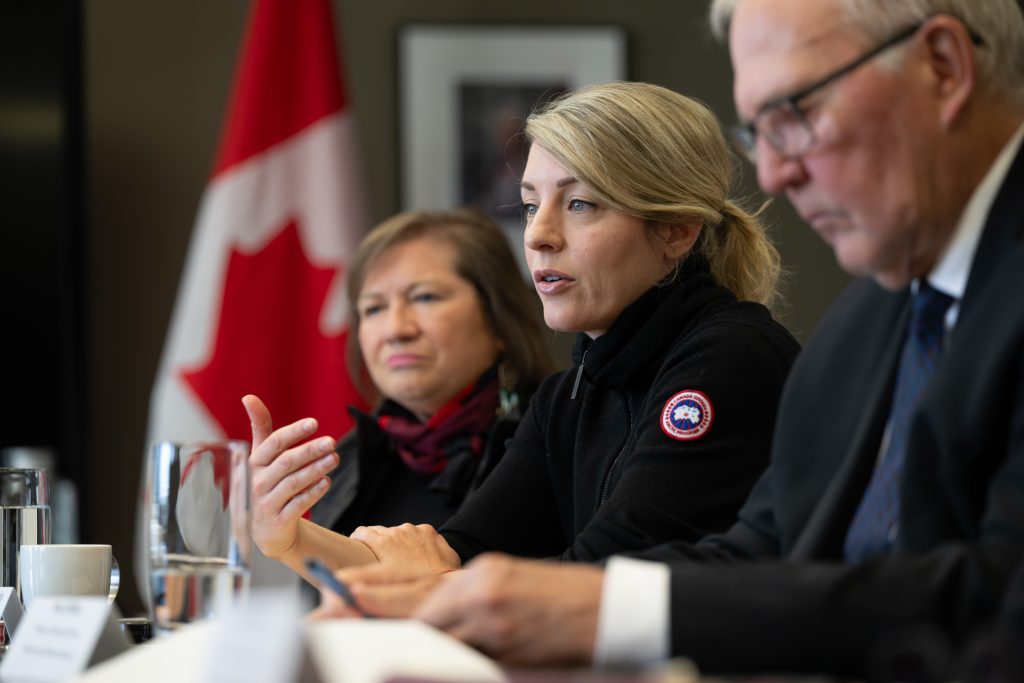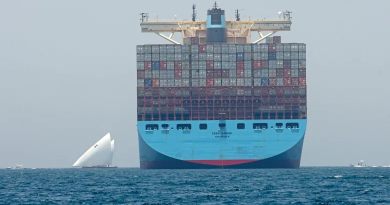Ministers Joly and Blair talk defence policy in Nunavut

Canada’s investment in Arctic infrastructure as part of its new defence strategy will not only help build deterrence capabilities in the North, but will also benefit northerners, Canada’s Minister of Foreign Affairs, Mélanie Joly, and National Defense Minister Bill Blair, told an Iqaluit news conference on Monday.
“If we build a landing strip that can accommodate a fighter or transport plane, it can also be accessible to the community wishing to import goods and services or conduct medical evacuations and improve their quality of life,” Blair said.
The new strategy, “Our North, Strong and Free: A Renewed Vision for Canada’s Defense,” was released on April 8, following the federal budget.
The plan includes investments of $8.1 billion over the next five years and $73 billion by 2044.
Aims include enhancing the tactical capabilities of the Canadian Armed Forces (CAF) through the renewal of the surveillance aircraft fleet, submarines, all-terrain vehicles, and missiles.
The policy also includes massive investments in northern infrastructure to enable a year-round presence of the Canadian Armed Forces (CAF) and enhance the tactical capabilities of the forces through renewal of surveillance aircraft fleet, submarines, all-terrain vehicles, and missiles.
Northern Operational Hubs consisting of airstrips, warehouses, and other buildings are also planned.
Blair said the location of the hubs will be determined after consultations with regional governments and Inuit organizations.
Out of a total envelope of $218 million for the next 20 years, $18 million will be allocated to this “hubs” project by 2029.
Focus on deterrence
As climate change makes Arctic waters more accessible, Russia has been heavily investing in Arctic infrastructure for well over a decade. It now has the largest icebreaker fleet—both nuclear and conventionally powered—in the world.
On Monday, Foreign Affairs Minister Joly reiterated the importance of investing in Arctic deterrence capability given current geopolitical instability.
“We must understand that we are a neighbor of Russia, and they have invested in their North,” she said. “That’s why we must maintain a competitive edge.”
Ongoing diplomatic cooperation with Washington and the Nordic countries in the North is also key, she said.
Joly and Blair were accompanied by Minister of Northern Affairs, Dan Vandal, on their trip. They also met with the premiers of Yukon, the Northwest Territories, and Nunavut, as well as regional organizations and the mayor of Iqaluit.
-Reporting by Félix Lebel, Radio-Canada; translation Eilís Quinn, Eye on the Arctic
Related stories from around the North:
Canada: Canada pledges billions for defence, falls short of NATO’s 2%, CBC News
Denmark: Denmark’s Arctic, North Atlantic focus: Canada among new defence attaché posts, Eye on the Arctic
Finland: Military exercise apparently disrupts weather images from Lapland, Yle News
Iceland: Iceland authorizes U.S. submarine service visits, Eye on the Arctic
Norway: Against Russian aggression: Norway signs security agreement with Ukraine, The Independent Barents Observer
Russia: Military investigators conduct raids in Murmansk region to enlist young men, The Independent Barents Observer
Sweden: Increased risk of Russian sabotage, including in Sweden, warn Intelligence agencies, Radio Sweden
United States: US Army sends heavy equipment to Arctic Norwegian port for transfer to Finland, Eye on the Arctic


